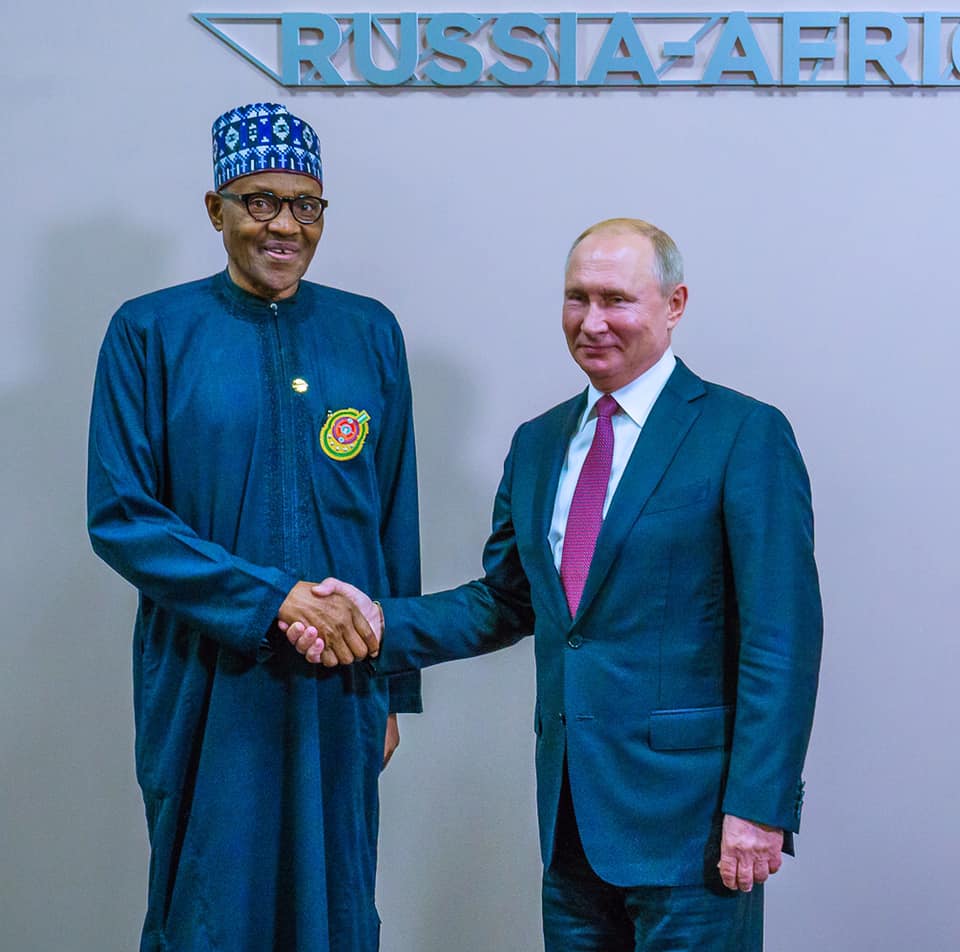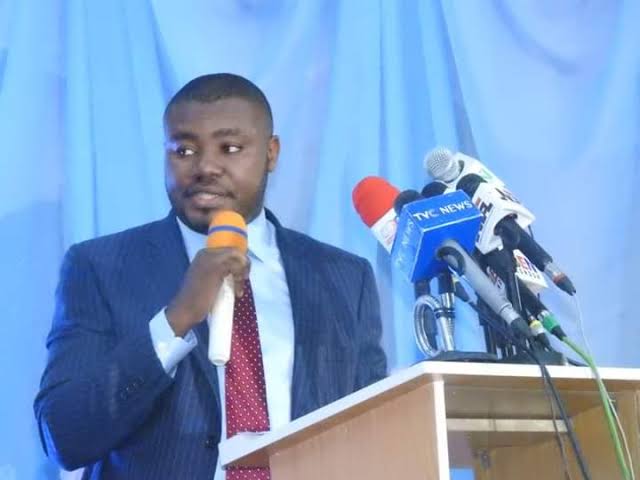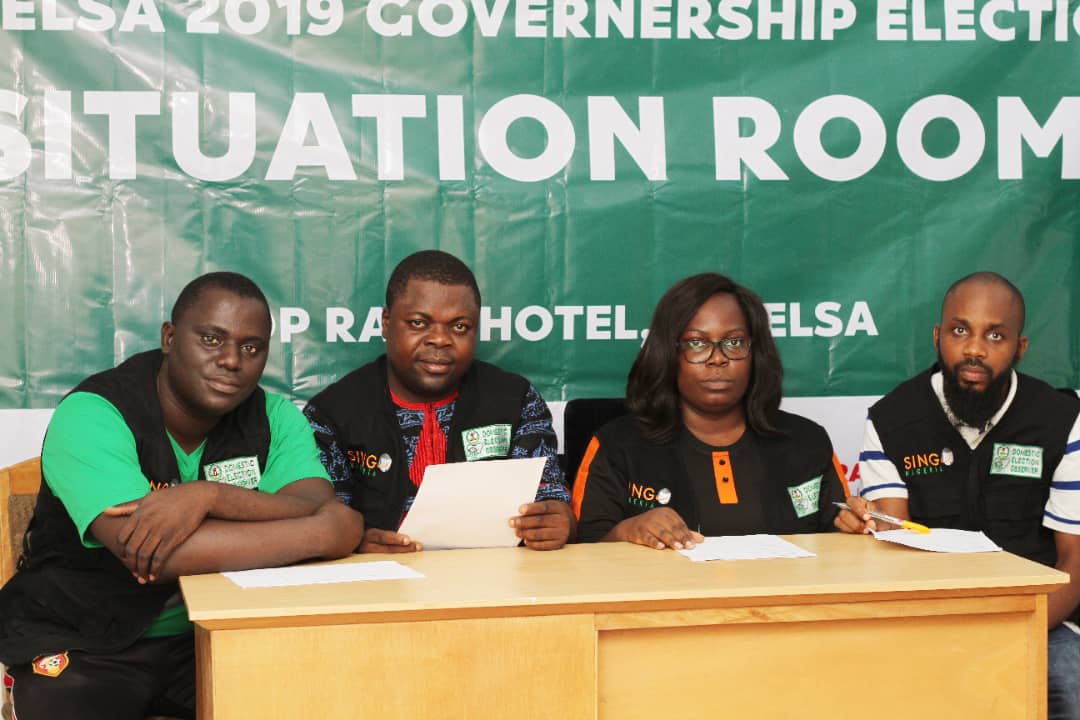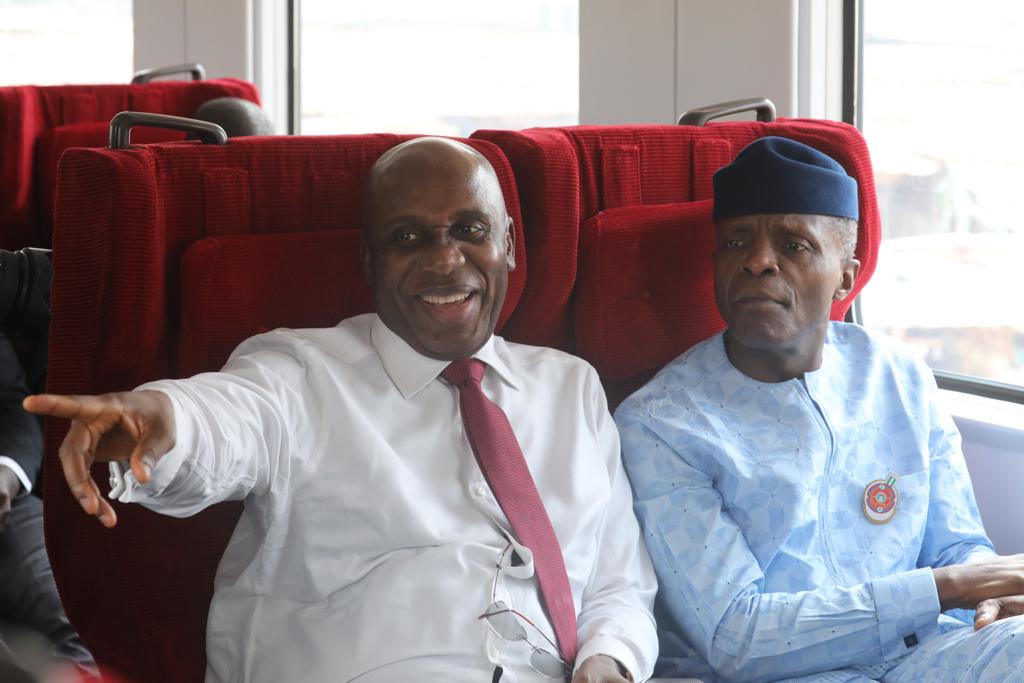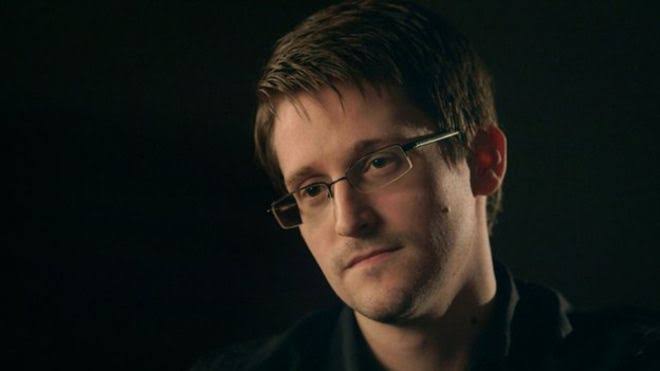Buhari in a handshake with Putin
BY RICHARD OGUNDIYA
We are in a world that is governed by relationships: whether bilateral, multilateral, romantic, formal, informal, and what have you. Each is premised largely on what each person brings to the table – even where it is formed first from admiration. Relationships look broadly at the concept of gain and losses, what is added, and what is subtracted. And we cannot do without them. Hence the famous saying, no man is an island on his own.
For countries, nations look to others for what they cannot produce or do, and also for what to sell on what they produce or have done. While some bilateral relations are gained to make allies, not for the immediate but for the long term when the need may arise.
When Buhari attended Russia’s African summit unschooled opinions where needlessly critical of it. They did not ask the rather fundamental question of “what is in this for us?”, wait for the outcome, and then critic any unfair and imbalance deals, needless purchases, or wasteful spending.
Advertisement
Unfortunately for them, and fortunately for Nigeria, there was nothing to critic. Many Nigerians share concerns, genuine or otherwise, about the recurrence of President Buhari’s travels. But more than ever, at a time where the country is in dire need of as much help as it can get, Nigeria needs to restore and reform its diplomatic relationships with allies for its own economic, socio-cultural and security interests. A few days ago, African leaders including President Muhammadu Buhari met with President Vladimir Putin and other Russian stakeholders in Sochi to explore and expand opportunities in security, trade and investment, science and technology, agriculture, transportation and oil & gas production; as well as revive existing ones. This is undeniably a big deal! And considering Nigeria’s history with the Soviet Union before its dissolution, this new pact breathes fresh understanding and marks the beginning of a new era of bilateral bromance for both countries.
For decades, western counterparts and the media have fuelled not too pleasant narratives about Russia, in some instances they have even berated the country for providing support to African states, in military, mineral, energy and other sectors pertinent for peace and stability. The former Soviet Union also aided African countries in their fights for independence and sought to build industrial infrastructure and develop national economies, but it did not take long for much of the clout to wane off. Russia relies on imports from Africa to cover its requirements for minerals such as manganese, bauxite and chromium. It needs Africa, as much as Africa needs it.
The result of the Soviet’s collapse is the decline in Russia’s engagement and presence in Africa, especially compared to the roles the US, UK and Asia play. The volume of on-going trade between Nigeria and Russia is relatively low, a paltry $350 million. This is poor given the rich economic and trade endowments of both Nigeria and Russia. The summit, the first ever of its kind, is a clear indication that Russia is stepping up its efforts to increase its influence in Nigeria and Africa at large. Putin reaffirmed intentions to restore his country as a major geopolitical player in the region declaring that the friendly relationship between Nigeria and his country has gained a new momentum, symbolized by a 93 per cent growth in trade between the two nations in 2018. He promised that Nigeria will get access to Russian companies ready to offer their scientific and technological developments.
Advertisement
Africa’s largest economy also sealed a major deal with Russia for the construction of two nuclear power plants, with a view to ending the country’s ongoing energy crisis. Other resuscitated projects include steel rolling mills (Ajaokuta and Aladja), ALSCON Ikot-Abasi, Akwa Ibom (Nigeria’s only aluminium smelting plant), rail transportation, security and military cooperation, oil and gas, agriculture (wheat production and fertilizer) and education. Nigeria also procured 12 Mi-35 attack helicopters and got Russia’s support to help in its fight against Boko Haram. NiGaz Energy Company – a new joint venture between GASPROM, the world’s biggest national energy company and Nigerian National Petroleum Corporation (NNPC) was also birthed.
Nigeria needs Russian technology to boost industrialization just as Russia needs Nigeria as a market for its industrial products and military equipment. One of the three key themes of the summit was security which led to the design of a regional security architecture that would use new technological solutions to ensure security for cities, securing the borders and creating a buffer against the illegal movement of explosives, weapons, drugs and smuggling to reduce terrorist danger in the country. It should be noted that during the Nigerian civil war, circa 1970, Russia provided Nigeria with political and military assistants and today, the country accounts for 35% of arms exports to Africa. Nigeria-Russia Military Technical Agreement that lapsed a few years ago without being renewed will now be given due attention. The significance of this agreement lies in the fact that it opens the door to the procurement of military hardware, on a government-to-government basis, eliminating middlemen and reducing cost, as well as the training of military personnel, modernization of the armed forces, refurbishment and renewal of infrastructure and equipment.
This intervention was necessary for Nigeria in its efforts to overcome various difficulties, develop new relations of cooperation, and attain a balanced growth in economic relations between both countries. If Nigeria needs to make any new friends, or revive any dwindling romance, it is that which it has with Russia.
Ogundiya is a researcher and journalist based in Lagos
Advertisement
Add a comment
